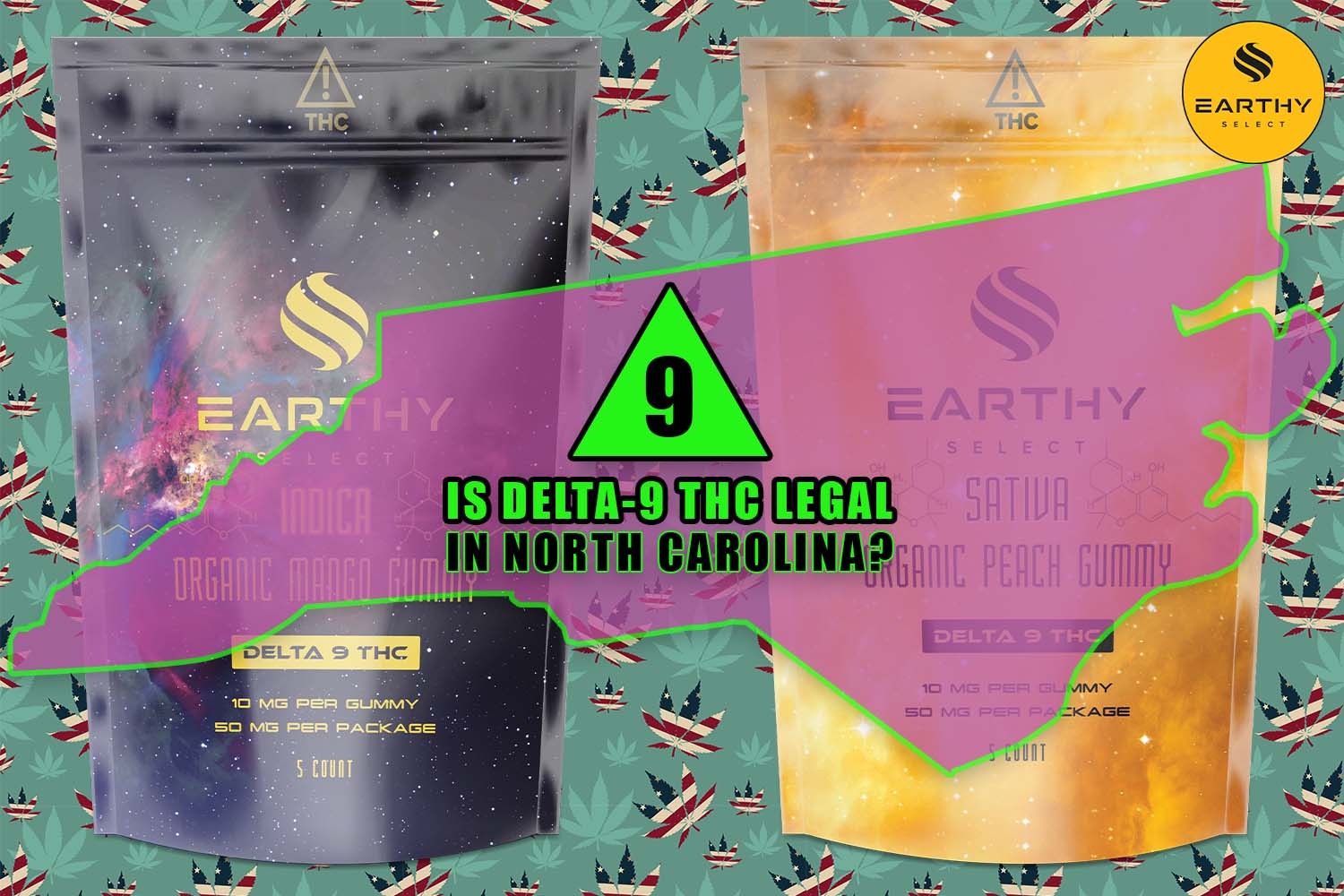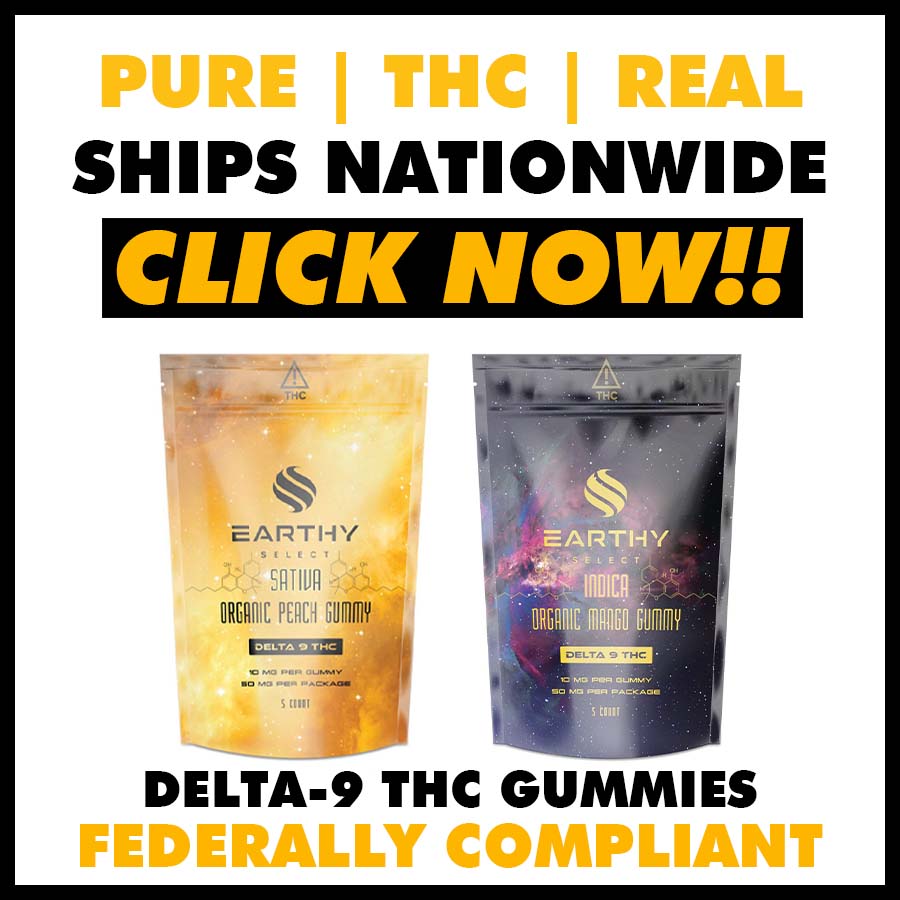Is Delta 9 THC Legal in North Carolina?
Are you curious about the legal status of Delta-9 THC products in North Carolina? Well, you’re in the right place. In this article, we’ll dive into the world of hemp-derived Delta-9 THC and its legality in the Tar Heel State. Is Delta-9 THC legal in North Carolina or not? We’ll answer your most pressing questions about the psychoactive cannabinoid. From understanding what Delta-9 THC is and how it relates to hemp and marijuana to exploring where you can legally purchase
Delta-9 gummies, we’ve got you covered.
Can you buy Delta-9 gummies in North Carolina?
In North Carolina, you can find a variety of Delta-9 THC gummies derived from hemp plants. These hemp-derived products offer a legal way to enjoy the potential benefits of Delta-9 THC. Available in different flavors, dosages, and formulations, Delta-9 gummies cater to various preferences and needs. These treats provide a potent and direct experience of Delta-9’s psychoactive effects and potential therapeutic benefits[1].
Delta-9 gummies can differ from each other in their potency and dosage. Some gummies come in low-dose options, typically containing 5-10mg of THC per gummy. These are ideal for beginners or individuals who prefer a subtle experience. There are also medium-dose gummies with THC concentrations ranging from 10-25mg per gummy, offering a more pronounced effect while maintaining control. However, these used to only be available to individuals with medical marijuana prescriptions (which North Carolina doesn’t have). For folks seeking a stronger experience, high-dose 50mg Delta-9 gummies are available. These are suitable for experienced users or individuals with a higher THC tolerance [1].
Buy THCa Flower In North Carolina – Buying Guide For Best THCa
Understanding Delta-9 and its legal status in North Carolina
Delta-9 THC is a naturally occurring cannabinoid in cannabis plants, including both hemp plants and marijuana plants. While marijuana plants contain higher levels of Delta-9 THC, hemp plants have lower concentrations. The legal status of Delta-9 THC in North Carolina is determined by the concentration limit set by federal laws [2].
The passing of the 2018 Farm Bill in the United States significantly changed the legal status of hemp and hemp-derived products. Under this bill, hemp was defined as cannabis plants and derivatives that contain 0.3 percent Delta-9 THC or less on a dry weight basis. This legalization allowed for the processing of hemp plants and the commercial sale of hemp-derived products. It opened up opportunities for developing and distributing various cannabis products, including those containing other natural cannabinoids like CBD, which quickly gained popularity for potential therapeutic benefits [3].
Learn more in the Guide to Hemp-Derived Delta-9 THC.
How does the 2018 Farm Bill apply to North Carolina laws?
In North Carolina, the 2018 Farm Bill’s provisions regarding hemp-derived products also apply. As long as these products meet the requirement of containing 0.3 percent Delta-9 THC or less on a dry weight basis, they can be legally sold and consumed in the state. North Carolina has since passed its own hemp laws to regulate the state’s cultivation, processing, and sale of hemp products [4]. These laws ensure that hemp products undergo lab test results to confirm their THC levels, ensuring compliance with the legal limit. Consumers in North Carolina can purchase hemp products from licensed retailers, including Delta-9 THC products, knowing that these products are compliant and this has been verified through lab testing [5].
Is Delta-8 legal in North Dakota?
Delta-9: What it is and its legal relationship to hemp and marijuana
Delta-9 THC, with its chemical formula C21H30O2, is a psychoactive compound in both hemp and marijuana plants. However, the concentration of it in hemp plants is significantly lower than in marijuana plants. Hemp plants are defined as, and legally recognized as, cannabis plants containing less than 0.3% delta-9 THC on a dry weight basis.
Here’s a breakdown of the key legal distinctions between hemp and marijuana:
- Hemp products: These are derived from the hemp plant and contain low levels of Delta-9 THC, ie. 0.3 percent or less on a dry weight basis. They are federally legal and can be sold and consumed in many states. Hemp products often include natural cannabinoids like CBD, Delta-8 THC or Delta-10 THC, known for their potential therapeutic benefits.
- Marijuana products: These refer to cannabis products that contain higher levels of Delta-9 THC – above the 0.3 percent threshold. They are subject to varying guidelines across jurisdictions, with some states legalizing their use for medical or recreational purposes.
- Legal status: Hemp products are federally legal under the 2018 Farm Bill, while marijuana products are federally illegal but subject to state-specific regulations which may allow adult use.
- Lab test results: Hemp products undergo lab testing to ensure they meet the legal limit of THC content. These lab test results confirm that the products contain trace amounts of Delta-9 THC within the legal threshold [6].
Common misconceptions about their legal differences
One common misconception is that all cannabis products are the same and will get you “high” and are illegal. In reality, this isn’t true. there are many cannabis products that don’t result in feeling high. The legal distinction between hemp and marijuana lies in the THC content, with hemp products containing significantly less THC.
Consumers should understand these legal differences, as it helps them make informed choices when purchasing cannabis products. Whether from an online retailer or a brick-and-mortar store, consumers need to know the differences between types of cannabis and their legal statuses. Lab-tested hemp products with low levels of THC, such as CBD products, provide a legal and potentially beneficial option for those seeking the therapeutic effects of natural cannabinoids without the same psychoactive properties.
Can you legally possess Delta-9 in NC?
Yes, you can legally possess Delta-9 THC products derived from hemp plants in North Carolina. As long as the Delta-9 THC content is below the specific concentration limit of 0.3 percent on a dry weight basis, these hemp-derived products are legal. However, marijuana-derived products containing higher levels of Delta-9 THC are not legal [6].
Where to buy legal Delta-9 THC in North Carolina
You have various options to purchase legal Delta-9 THC products in North Carolina. Licensed cannabis stores, online retailers like Earthy Select, and hemp dispensaries offer a range of hemp-derived cannabinoids and hemp extracts, including Delta-9 products. When purchasing online, ensure that the retailer provides lab test results verifying the THC content of their products [7]. Try Earthy Select’s 10mg Delta-9 Sativa Gummies for an uplifting treat!
Buy THCa Flower In Raleigh, North Carolina
What Is Delta-9 THC?
Delta-9 THC, or delta-9-tetrahydrocannabinol, is a naturally occurring cannabinoid in cannabis plants. It shares the same chemical formula as other THC isomers but differs in its molecular structure. Delta-9 THC is the primary psychoactive compound responsible for the euphoric effects commonly associated with marijuana [8].
What to expect when consuming Delta-9 THC?
Consuming Delta-9 THC products can result in intoxicating effects, relaxation and altered perception. The specific effects can vary based on factors such as a person’s tolerance, dosage, the product’s THC content and even the setting it’s consumed in. Be sure to start with smaller doses if you have a lower tolerance and avoid operating heavy machinery or engaging in tasks that require full attention while under the influence [9]. It can take 30-90 minutes for the effects to start, and they can last hours. Delta-9 will remain in your system past the time when effects stop.
Sometimes Delta-9 THC users experience anxiety, dry mouth, or increased heart rate as side effects from using Delta-9. Consult a healthcare professional if you have questions about using Delta-9 [10].
What Delta-9 products are available?
In addition to gummies, various Delta-9 THC products are available in North Carolina, including tinctures, vape cartridges, flower, capsules, and topicals. These hemp-derived cannabinoid-based products offer alternative vehicles for consuming and enjoying Delta-9 THC. Delta-8 gummies are another popular THC product from hemp. Delta-8 vs Delta-9 gummies – which one should you try?
Best-selling Delta-9 gummies in North Carolina
Regarding the best-selling Delta-9 THC gummies in North Carolina, Earthy Select rises to the top. Earthy’s products come in delicious flavors like peach, mango, raspberry and blueberry, and are made in both indica and sativa varieties. The all-natural, organic gummies allow users to enjoy cannabis discreetly and confidently. They are popular among individuals with higher tolerances and those who prefer smaller doses.
Where can I buy Delta-9 gummies In NC?
To buy Delta-9 THC gummies in North Carolina, explore licensed cannabis stores, online retailers like Earthy Select. Choosing a reputable source that complies with federal and state laws is important. Additionally, ensure your source provides lab test results to double-check that the THC content is within the legal limit.
Is Delta-8 Legal in South Carolina?
Key takeaway on Delta-9 legality in North Carolina
To review, hemp-derived Delta-9 products are legal in North Carolina if they contain less than 0.3 percent Delta-9 THC on a dry weight basis. While hemp and marijuana are both cannabis plants, their Delta-9 THC concentrations differ, leading to variations in their legal status. When purchasing Delta-9 THC products, it’s essential to choose reliable sources, consume responsibly, and understand your state’s regulations regarding THC content. So if you’re ready to experience this powerful cannabinoid, choose your consumption method and let the magic (and science!) begin.
Learn more: Is Delta-8 Completely Legal in North Carolina?
Medical Disclaimer / Legal Disclaimer – Information is provided for educational purposes. It does not and is not intended to constitute legal advice or medical advice. We attempt to be accurate and up-to-date, but the legality of cannabinoids and the science of cannabis are evolving. The author is neither a legal professional nor a medical expert. Before buying or using any products, you should check with your local authorities and medical providers.
References
- Broad-spectrum versus Full-spectrum versus Delta-9
- What is an Optimal Delta-9 Gummy Dose?
- Hemp-derived Delta-9 versus Weed: What’s the Difference?
- Delta-9 Made Legal: How the 2018 Farm Bill Paved the Way
- Is Delta-9 Legal in North Carolina?
- Hemp versus Marijuana: What’s the Difference?
- Cannabis Product Testing
- What is Delta-9 THC?
- What to Expect with Delta-9 THC
- Delta-8 versus Delta-9: What’s the Difference?
Frequently Asked Questions
Can businesses sell hemp products with Delta-9 THC in North Carolina?
Yes, hemp products with Delta-9 THC levels below the legal Farm Bill threshold of 0.3% can be legally sold in North Carolina. The state has implemented its own laws to regulate the cultivation, processing, and sale of hemp products, ensuring compliance with federal requirements.
Does North Carolina require businesses to conduct lab test for products containing Delta-9 THC?
Testing is not required but it is a sign of a reputable producer or seller. These test results confirm that the THC content is within the legal limit. Consumers should choose products from reputable sources that provide transparent lab testing to ensure compliance with state and federal regulations.
Will Delta-9 gummies get me high?
Although everyone’s system is different and effects will vary, Delta-9 THC can produce feelings of being high, euphoria, deep relaxation, increased creativity and sociability.
Does hemp Delta-9 show up on drug tests?
Yes, hemp products even with low Delta-9 THC levels can result in a positive drug test for marijuana. Hemp and marijuana both come from cannabis and Delta-9 THC is the same substance regardless of its source.




